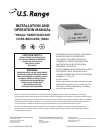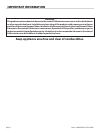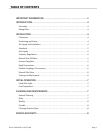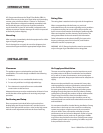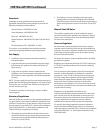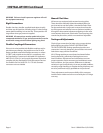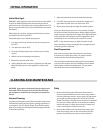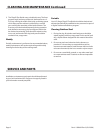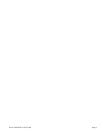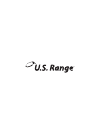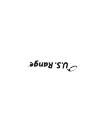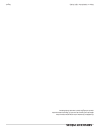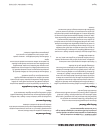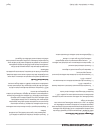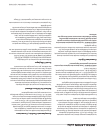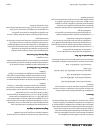Special offers from our partners!

Find Replacement BBQ Parts for 20,308 Models. Repair your BBQ today.

Part # 1382692 Rev 3 (02/22/08) Page 5
INSTALLATION Continued
Standards
Installation must be planned in accordance with all
applicable state and local codes, taking into account the
following standards (or latest edition):
Grease Extractor ANSI/NFPA 96-1992
Power Ventilators ANSI/NFPA 96-1987
Filter Unit ANSI/NFPA 96-1987
Smoke Detectors ANSI/NFPA 728-1986. CAN/ULC 8553-
1986
Fire Extinguisher (C02) ANSI/NFPA 12-1989
This section is not intended to be complete and other
nationally recognized standards may be appropriate.
Gas Supply
1. Installation of the equipment should be made by a
licensed plumber.
2. A gas shut-o valve must be installed in the gas supply
line ahead or the appliance for safety and for ease of
future service.
3. A gas pressure regulator must be installed at the
appliance prior to connecting the equipment to the gas
line. Failure to install a regulator will void the equipment
warranty.
NOTE: The gas supply (service) line must be the same size or
greater than the inlet line of the appliance. U.S. Range “Regal”
char-broilers use a 3/4” NPT inlet. Sealant on all pipe joints
must be resistive to LP gas.
To convert to propane or natural gas, contact a certied
service agency.
Statutory Regulations
Safe and satisfactory operation of your equipment depends,
to a great extent, on its proper installation. Installation must
conform to local codes or, in the absence of local codes with
the National Fuel code, ANSI Z223.1, Natural Gas Installation
Code, CAN/CGA-B149.1, or the Propane Installation Code,
CAN/CGA-B149.2, as applicable, including:
1. The appliance and its individual shuto valve must be
disconnected from the gas supply piping system during
any pressure testing of that system at test pressures in
excess of 1/2 psi (3.45 kPa).
2. The appliance must be isolated from the gas supply
piping system by closing its individual manual shuto
valve during any pressure testing of the gas supply piping
system at test pressures equal to or less than 1/2 psi (3.45
kPa)
Manual Shut-O Valve
This installer-supplied valve must be installed in the gas
service line ahead of the appliance and regulator in the gas
stream and in a position where it can be reached quickly in
the event of an emergency.
Pressure Regulator
All commercial cooking equipment must have a pressure
regulator on the incoming service line for safe and ecient
operation. The pressure regulator installed must be listed by
a nationally recognized agency. Line service pressure may
uctuate with local demand.
All “Regal” char-broilers must be installed with the included
gas pressure regulator.
Regulators are adjusted at the factory for 5” WC (natural gas)
or 10” WC (LP gas) depending on the customer’s ordering
instructions.
Prior to connecting the regulator, check the incoming line
pressure, as these regulators can withstand a maximum
pressure of 1/2 psi (14” WC). If the Line pressure is beyond
this limit, a step-down regulator will be required. Double-
check the arrow forged onto the bottom of the regulator
body which shows gas ow directions; it should point
downstream to the appliance. The red air-vent cap is part of
the regulator and should not be removed unless local codes
require external venting.
Regulators can be adjusted in the eld, but it is
recommended that they not be tampered with unless that
part is known to be out of adjustment or serious pressure
uctuations are found to exist and can be solved no other
way. Any adjustments to regulators must be made by
qualied service personnel with proper test equipment.
If a vent line from the gas appliance pressure regulator is
used, it should be installed to the outdoors in accordance
with local codes or code ANSI Z223.1, Natural Gas Installation
code, CAN/CGA-B149.1, or The Propane Installation code,
CAN/CGA-B149.2.



